Animals
-
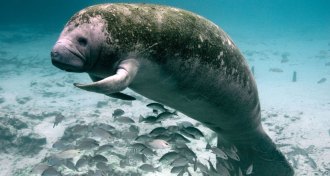 Animals
AnimalsHow many manatees live in Florida?
The most recent official count reports more than 6,000 manatees in Florida waters, but a new estimate may give a better picture of the population.
-
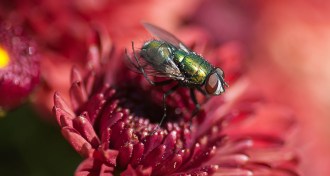 Animals
AnimalsShimmer and shine may help prey sabotage predators’ aim
Iridescent prey was more difficult to strike in a video game for birds.
By Susan Milius -
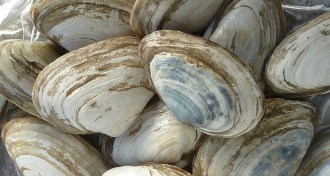 Genetics
GeneticsContagious cancer found in clams
A soft-shell clam disease is just the third example of a contagious cancer.
-
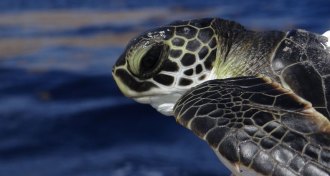 Animals
AnimalsTiny sea turtles are swimmers, not drifters
Young green and Kemp’s ridley sea turtles moved in different directions than instruments set adrift in the sea, which shows the animals were swimming.
-
 Animals
AnimalsDealing with droughts, museums going digital and more reader feedback
Readers share their experiences with dry weather in the U.S., discuss how humans mentally sort quantities and more.
-
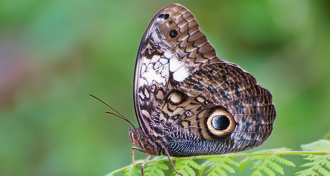 Life
LifeIt’s true: Butterfly spots can mimic scary eyes
Contrary to recent studies, the old notion that butterfly wing eyespots evoke predator eyes may not be so old-fashioned after all.
By Susan Milius -
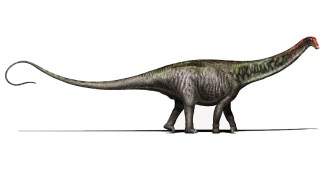 Paleontology
PaleontologyBrontosaurus deserves its name, after all
Brontosaurus belongs in a genus separate from Apatosaurus, a new study proposes.
-
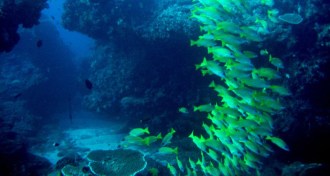 Animals
AnimalsDistinct voices fill the fish soundscape at night
Researchers find that fish sound frequencies overlap more during the day and are more distinct at night.
-
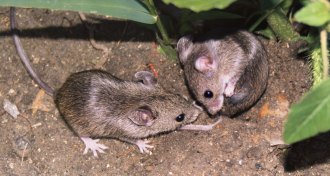 Animals
AnimalsMouse mates with similar personalities start families faster
Among monogamous mound-building mice, the more closely mates match in a tendency toward anxiety, the sooner they start having babies
By Susan Milius -
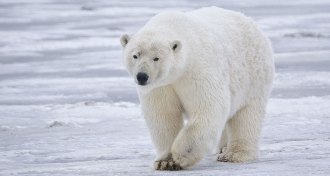 Animals
AnimalsEggs and other land foods won’t feed polar bears
Polar bears will not be able to survive on land by eating birds, eggs and vegetation, a new review concludes.
-
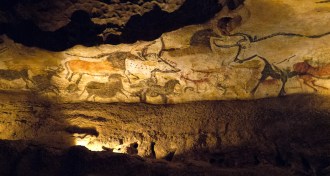 Animals
Animals‘Domesticated’ explores how humans have altered animals
Science journalist Richard Francis delves into the genetic changes humans have caused in dogs, cats, pigs, horses, camels and more.
-
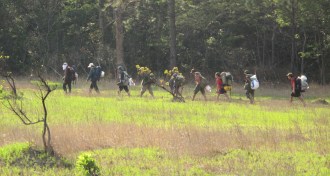 Animals
Animals‘The Last Unicorn’ takes readers on quest to see a saola
Nature writer William deBuys introduces readers to the enigmatic saola of Southeast Asia.